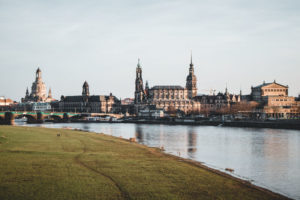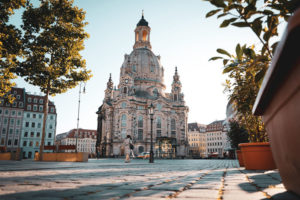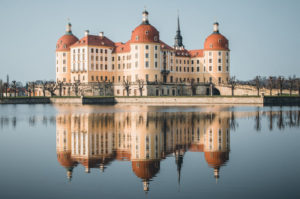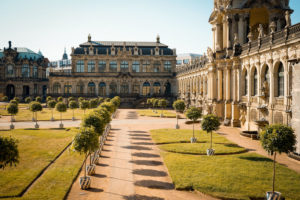Dresden | Florence on the Elbe
Dresden is the capital of Saxony – one of the German states, which is mostly identical to the former kingdom of Saxony and therefore a city with a long and rich history spanning more than 800 years. The city of Dresden is known as “Florence on the Elbe”, due to its outstanding baroque architecture and impressive collection of art galleries and museums. Architectural and artistic treasures within Dresden include the Palace and the Zwinger, the Semper Opera House, the Cathedral, the Japanese Palace, the Royal Treasury, and the Old Masters Picture Gallery, as well as nearly 100 more museums. The palaces of Pillnitz, Meiβen and Moritzburg, the Porcelain Manufactory at Meiβen, and the fortifications at Königstein are all nearby. Many attractions in the environs of Dresden can be reached by a leisurely steamboat ride down the Elbe, which is an attraction in itself.
There is also a wide range of theatres and venues, offering a diverse and vibrant musical and theatrical scene, from the majestic State Theatre to the Theatre Barge, moored on the Elbe. Restaurants and bars are also not in short supply; both in the Old Town, and across the river in the Bohemian New Town, every taste will be catered for.
However, Dresden is not only a city of art, music and architecture, it is also remarkable for its number of scientific institutions and businesses. It is home to the Helmholtz-Zentrum Dresden-Rossendorf, which has been a member of the Helmholtz Association since 2011 and conducts research in the fields of energy, health and matter. The Technical University (TU Dresden) is also based here, which is currently one of Germany’s 11 universities of excellence. In addition to the university, numerous non-university research institutes belonging to the Max Planck, Leibniz or Fraunhofer Societies are situated here. Many researchers at various institutions and affiliated small companies work in the field of advanced instrumentation and measurement and related disciplines, making Dresden an optimal location for a SWINTH event.
Dresden is less than 2 hours by train or car from Germany´s Capital Berlin. It is located at the border between eastern and western Europe, making it easy to reach for visitors from Eastern Europe. The city has its own international airport and is connected to the German high-speed rail network. So it is quite convenient to reach.
For the outdoor lover Dresden is perfectly placed. The flood plains of the river Elbe provide an escape to the countryside. Also the surrounding landscapes with Saxon Switzerland in the east, the Ore Mountains in the south, a huge lake district in the north and the lovely, wide Elbe valley in the west of Dresden, where tasty wines are produced, are worth a visit. You are therefore cordially invited to combine the congress with a few days‘ holiday to explore Dresden and its landscape in detail.



